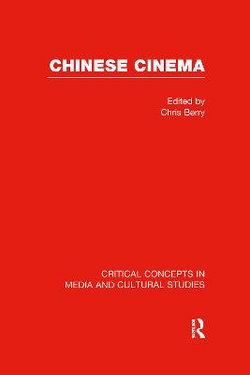While research in and around Chinese cinema flourishes as never before, not least because of its highly interdisciplinary nature, much of the relevant literature remains inaccessible or is highly specialized and compartmentalized, so that it is difficult for many of those who are interested in the subject to obtain an informed, balanced, and comprehensive overview. This new four-volume collection from Routledge's acclaimed series, Critical Concepts in Media and Cultural Studies, addresses that problem and meets the need for a reference work to help make sense of the subject's vast and widely dispersed literature, and the continuing explosion in research output.
The materials gathered by the editor, a leading scholar in the field, include major works that explore: aesthetics through key films and directors; film cultural practices, such as consumption, distribution, exhibition, reception and criticism; production practices, for instance, genres, stars, studio structures, and marketing; and cinema's connection to society and its relationship to issues such as the nation-state, revolution, and gender. The collection's temporal scope extends from the arrival of cinema via the Lumiere Brothers in 1895 to the present day, and it ranges widely across all territories to include full coverage of the films produced by the ethnic Chinese diaspora.
Chinese Cinema is supplemented by a full index and chronological tables of contents. It also includes an introduction, newly written by the editor, which places the gathered materials in their historical and intellectual context.



Share This Book: